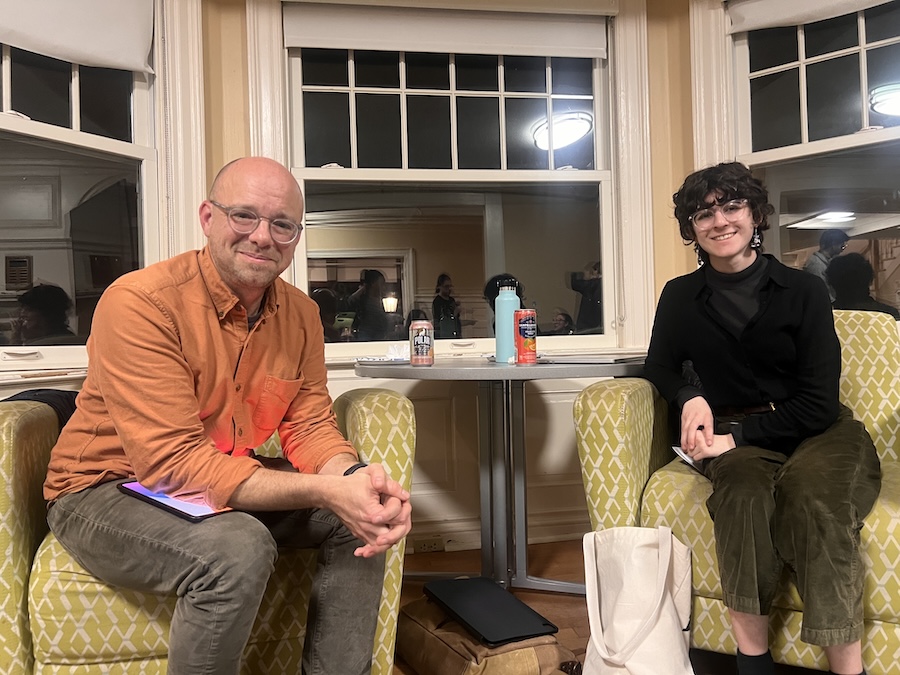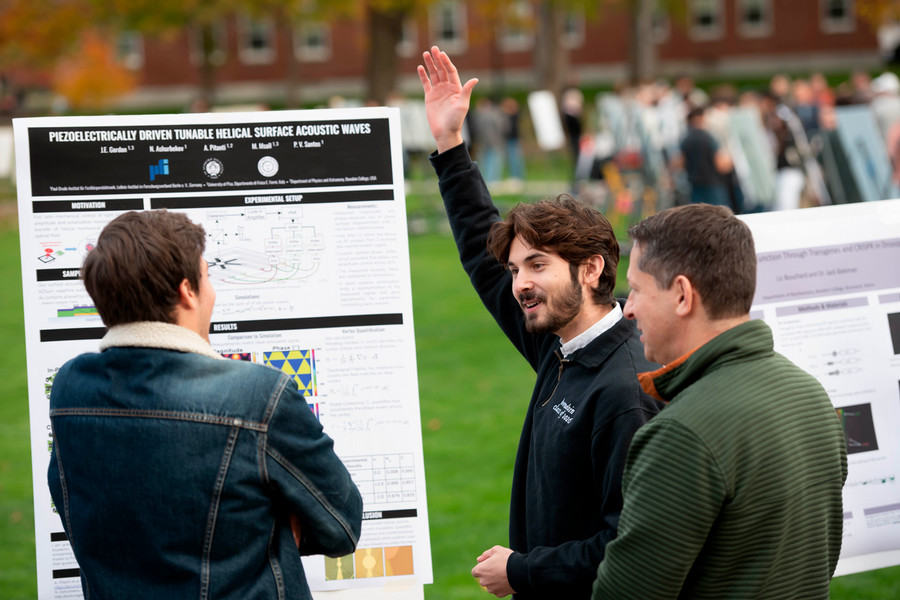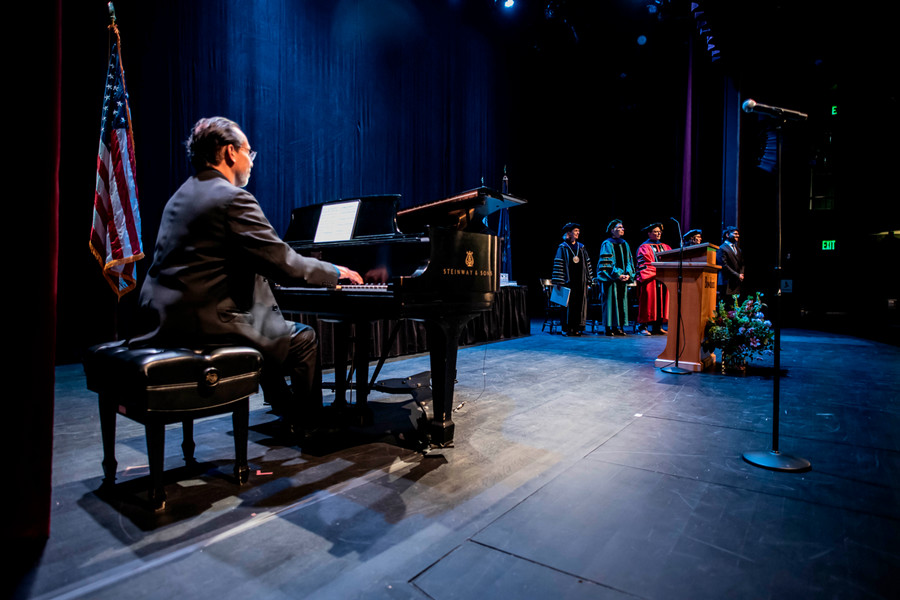Honoring Students’ Academic Achievement on Sarah and James Bowdoin Day
By Tom PorterWith the Bowdoin campus in lockout due to recent tragic events in nearby Lewiston, the College observed Sarah and James Bowdoin Day in a purely online format this year.

The event is held to recognize and present awards to Bowdoin's highest-ranking students—those with grade point averages in the top 20 percent of their class as determined by the previous year's record. The total number of Sarah and James Bowdoin Day Scholars this year is 273. See the program (PDF) for the full list.
Each scholar who earns a grade point average (GPA) of 4.0—the highest grade point awarded—also receives a Book Award, which bears a replica of the early College bookplate found on books in Hawthorne-Longfellow Library’s James Bowdoin Collection. This year, 107 scholars also received this award.
Additionally, the College honored fifteen Phi Beta Kappa students in all—one from the Class of 2023 and the rest from Class of 2024—and presented one of them with the Almon Goodwin Prize, awarded to exemplary members of the academic society.
The annual fall ceremony typically includes two addresses, one by a highly recognized practitioner in a liberal arts discipline—from Bowdoin or elsewhere—and one delivered by an outstanding Bowdoin student. This year's faculty speaker was due to be Professor of Education Doris Santoro, while the student address was to have been delivered by Hailey Ryan ‘26.
Ryan’s address is called “Embracing Mistakes and Celebrating Progress,” in which she congratulates her fellow scholars for their academic accomplishment. “I recognize the amount of diligence, care, and focus it takes to reach this kind of achievement. While we all have different ways of pushing ourselves, I imagine that we share some of the same challenges when it comes to balancing our desire to perform well with our desire to grow in new directions.”
Drawing on lessons she has learned during a recent course physical therapy for a back injury, Ryan has two pieces of advice for fellow students: “1) slow down, and 2) let yourself mess up—that’s how your brain learns to do it right. I think all of us can learn from embracing this approach more often, even if it sounds like something we’ve heard before or something that we might believe works for other people, but not for us.”
Ryan describes the process letting yourself “mess up” as a form of self-care, of being kind to yourself. It’s also the best way to learn, she explains. “Messing up is inevitable, and it’s how we respond to messing up that matters. We learn more deeply when we fail and keep trying.” Regarding her second piece of advice (to slow down), Ryan points out that “high academic achievers have a tendency to live in the fast lane, with all the pressure built up inside to keep succeeding... But slowing down,” she adds, “reevaluating, and thinking deeply helps us solve problems in any class in more profound ways."



